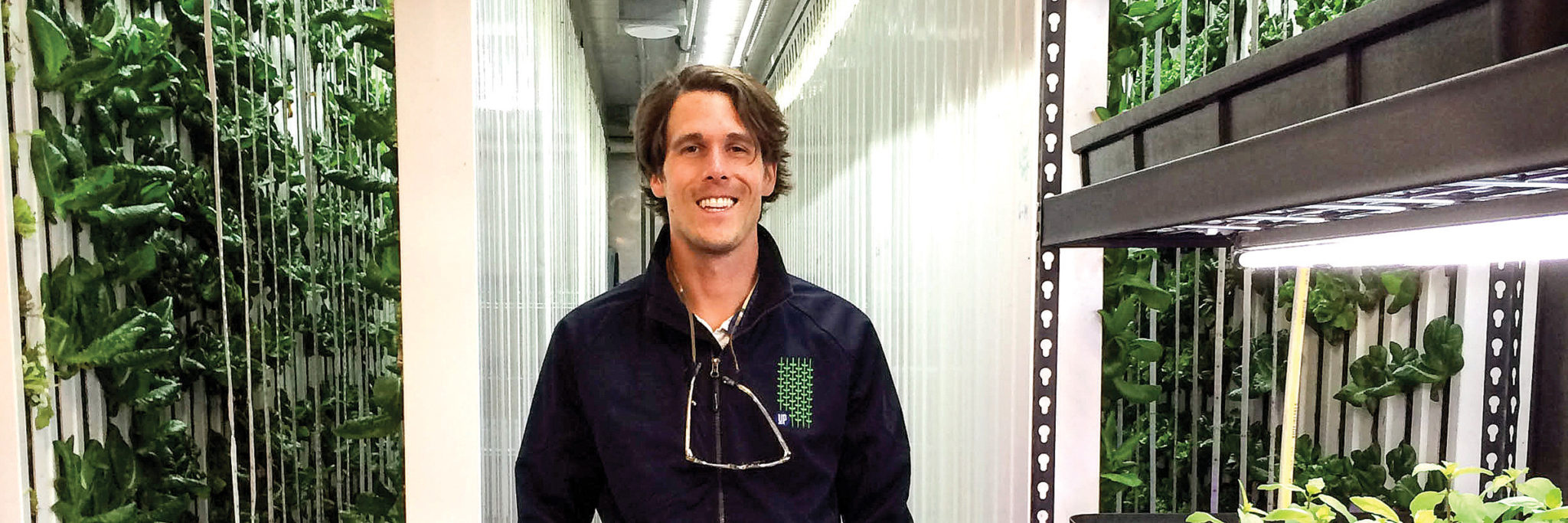J.J. Reidy has the grand vision of a startup CEO and the ambitions of a social activist. He launched his company, Urban Pastoral, in 2015, with a hydroponic farm that offers healthy food to economically depressed East Baltimore and workforce development to populations with barriers to employment—including previous incarcerations or developmental disorders. But Reidy’s plans were wider: In addition to managing the farms’ food production, he wanted to manage the restaurants that those farms supplied. “Ultimately, we thought that this would create an umbrella for greater opportunity for job creation,” says Reidy. Urban agriculture is typically a lean operation, he notes, designed to minimize both space and labor. “But when you merge it with hospitality, you can start to create more and more jobs.”
Urban Pastoral’s unique model is a product of Reidy’s diverse experiences, which include everything from working on a Vermont farming commune to consulting the Peruvian government on socioeconomic development during his graduate studies. At Denison, he studied abroad at Italy’s Umbria Institute and researched East Asian history under Barry Keenan, now professor emeritus. (“I truly felt that he learned just as much from his students as we learned from him,” says Reidy.) “What I loved about Denison is that I got exposed to so many different fields—whether it was a jazz history course, or getting to study abroad and live in Italy, taking fresco painting and painting a wall, or studying history.” And while on the surface it may be hard to see the tangible professional impact of studying history, he sees a direct line. “I feel like the skills I gained there are crucial for leadership,” says Reidy. “Being able to talk and write, to communicate, to tell your story—those are some of the key facets of managing companies.”
Reidy is applying those skills as he builds out Urban Pastoral. The company now operates two restaurants in Baltimore—one of which was recently named the best vegetarian spot in the city—and employs 35 full-time workers. He’s also fundraising to help build a second hydroponic farm, this one at a charter school in West Baltimore. “Our whole 10,000-foot vision is building a model for urban regeneration, which is centered around food,” says Reidy. It’s more than just building a farm or offering healthy food choices in economically depressed areas or offering jobs to people with barriers to employment, he says—it’s the sum of those parts: building an ecosystem that can help communities prosper.
True to his broad vision, Reidy believes Urban Pastoral can be a national model, worthy of export. His hope is that it can one day help his hometown. “We hope to replicate this in the future in other economically depressed, post-industrial cities,” says Reidy, “like the one I grew up in Buffalo.”

